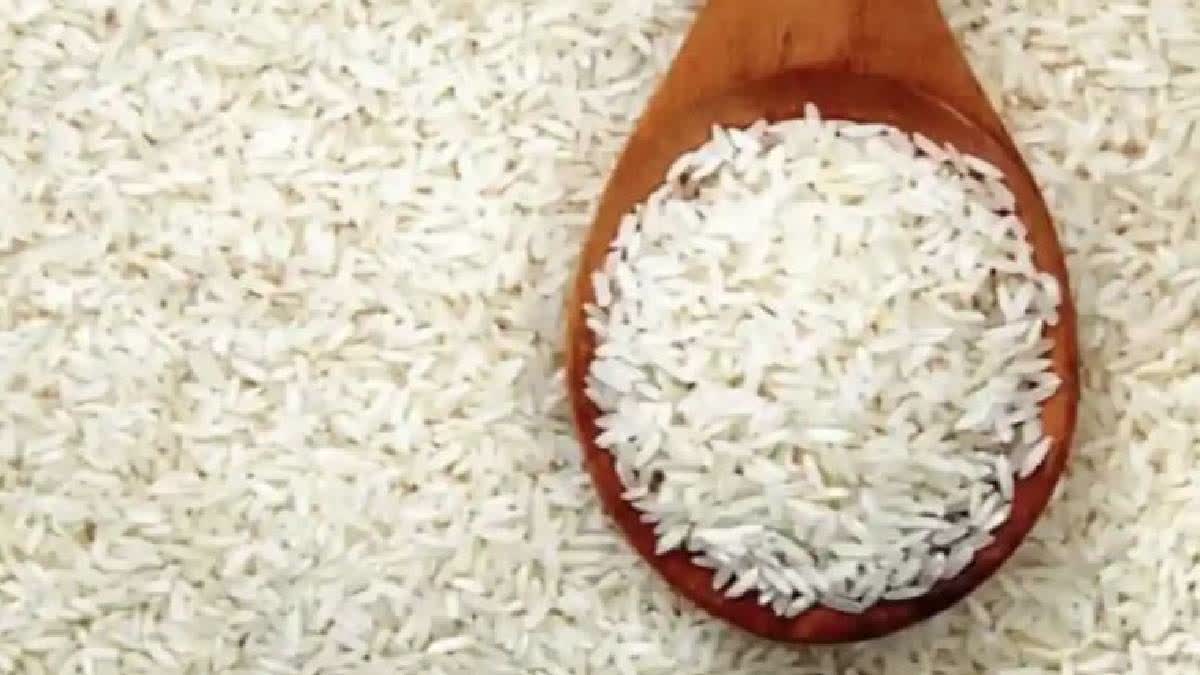Hyderabad: To manage the overall food inflation and to prevent unscrupulous speculation, the Central government has decided that the stock position of rice/paddy must be declared by traders/wholesalers, retailers, big chain retailers, and processors/millers in all states and Union Territories, until further orders.
They have to declare stock positions of broken rice, non-basmati white rice, parboiled rice, basmati rice, and paddy. The stock position of rice shall be declared by these entities within seven days after order is issued.
Further, to check inflationary trends in the food economy, it has been decided to start the retail sale of ‘Bharat Rice’ to general consumers.
In the first phase, 5 lakh metric tonne (LMT) of rice has been allocated for retail sale under ‘Bharat Rice’ brand through 3 agencies namely NAFED, NCCF, and Kendriya Bhandar. The retail price for the sale of 'Bharat Rice' to general consumers will be Rs 29 per kg. Rice will be sold in 5 Kg and 10 Kg bags. The 'Bharat Rice' will be available for purchase from mobile vans and physical outlets of the three central co-operative agencies to begin with, and it will also be available through other retail chains including e-commerce platforms very soon.
The domestic prices of rice are increasing despite a good crop this Kharif, ample stocks are in the pipeline with the Food Corporation of India (FCI), and various regulations in place on rice exports. The retail prices have increased by 14.51% percent over the past year. To curb the prices of rice, various steps have already been taken by the Centre.
Sufficient stock of good quality rice is available with FCI which is being offered to traders/wholesalers under OMSS at a reserve price of Rs. 29 per kg. To increase the sale of rice in the open market, the government has reduced the reserve price of rice from Rs. 3100 per quintal to Rs. 2900 per quintal and the minimum and maximum quantity of rice were revised to 1 MT and 2000 MT respectively.
In addition to this, regular publicity has been done by the FCI regional offices for wider outreach. As a result, the sale of rice has gradually increased. Till 31.01.2024, 1.66 LMT rice has been sold in the open market which is the highest sale in any year under the Open Market Sale Scheme (OMSS) for rice.
The export policy of broken rice has been amended from “Free” to “Prohibited” with effect from September 9, 2022. In respect of non-basmati rice, which constitutes about 25 percent of total rice exports, an export duty of 20 percent has been imposed with effect from September 8, 2022, to lower the prices of rice.
Subsequently, the export policy of non-basmati white rice was amended to ‘Prohibited’ with effect from 20th July 2023. In basmati rice, the contracts for basmati exports with the value of USD 950 per MT only and above are being registered for the issue of Registration–cum– Allocation Certificate (RCAC). A total of 20 percent export duty on parboiled rice has been imposed which will be applicable till March 31, 2024. All these measures have curbed the pace of the increasing trend of rice prices in the domestic market.
The Department of Food and Public Distribution is also maintaining a close watch over the stock position of wheat to control prices and ensure easy availability in the country. The All-India average domestic wholesale and retail price of wheat is showing a decreasing trend over a month and year. Atta (Wheat) prices too, are showing a decreasing trend over a week, month, and year in the all-India average Domestic Wholesale and Retail sections.
To increase the availability of wheat in the open market and to control the prices of wheat, the government has been offloading wheat in the market through weekly e-auctions from June 28, 2023. A total of 101.5 LMT wheat has been allocated by the government for offloading under the OMSS (Domestic) at a reserve price of Rs. 2150 per quintal for Fair Average Quality (FAQ) and Rs. 2125 per quintal for Under Reduced Specification (URS).
To increase the availability of wheat and to cater to the demand for wheat in the open market, the weekly offering of wheat in the e-auction is being gradually increased from an initial 2 LMT to the present weekly offering of 4.5 LMT. Till 31.01.2024, 75.26 LMT wheat has been sold under OMSS(D). It has now been decided to enhance the quantity of wheat being offered under OMSS in the weekly auctions to 5 LMT and also increase the lot size to 400 MT.
Read more


